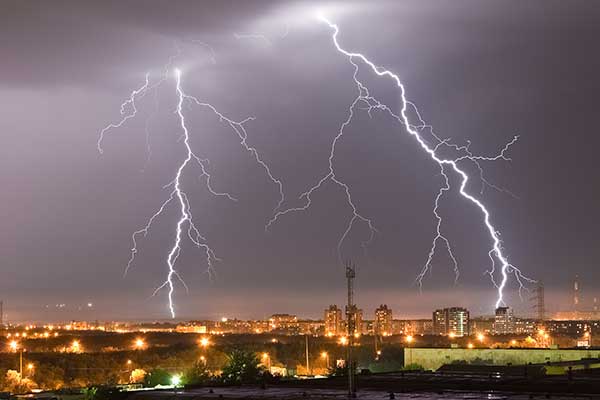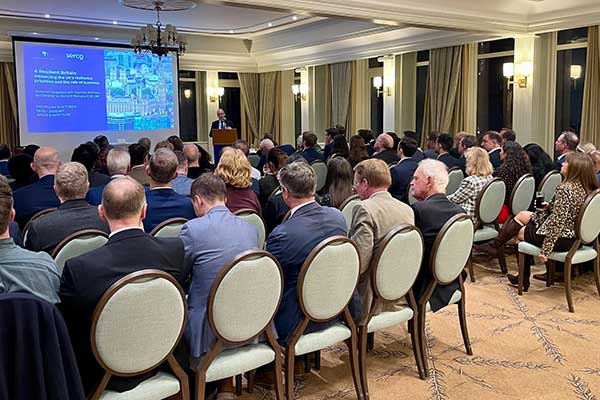A report conducted by the Global Strategic Partnership (GSP) on behalf of the Development, Concepts and Doctrine Centre (DCDC) within the UK Ministry of Defence (MOD) was published on 21 October 2021.
The GSP is an independent research consortium that provides rolling academic and analytical support to the DCDC within the MOD and to other parts of UK Government. The GSP is led by RAND Europe, a not-for-profit research institute that is part of the global RAND Corporation.
An extract from the Summary of the report is provided below. A copy of the full report, including graphics, can be found here.
‘Resilience, or how well nations are able to rebound from the shock of natural disaster or attack, has emerged as a key priority for governments in recent years.
Resilience is a core aspect of modern defence and security, enabling communities and countries to rebuild in the aftermath of crisis. As great power competition increases and challenges from climate change, pandemics and new technologies proliferate, resilience has increasingly become a priority for governments. Societal resilience is often described as requiring a ‘whole-of-society’ approach, with Defence (i.e. Ministries of Defence (MODs) and the Armed Forces) providing a supporting role. In this sense, understanding Defence’s place in helping a country prepare for and respond to crises is essential. This study for the Development, Concepts and Doctrine Centre (DCDC) explores implications that this increased focus on societal resilience might have for UK Defence in the 21st century. It seeks to understand what the UK can learn from approaches to defining and promoting societal resilience in other nations. This includes defining what is meant by societal resilience, why it is important, what lessons and good practice can be derived from other nations, and which lessons may be transferable to UK Defence.
Following a review of UK Defence’s existing role in societal resilience, the study team first selected case studies to identify their approaches to societal resilience The study team first consulted with DCDC to select the causal variables necessary to perform a clustering analysis to identify possible case study countries. Based on these variables and relevant open-source datasets, the study team generated clusters of different countries that shared similar characteristics that might impact resilience. Together with DCDC and the MOD, the team then selected five countries to take forward as case studies: Australia, Colombia, Israel, Russia, and Sweden. The clustering analysis helped to ensure the selected case studies represented a spread of different national approaches and contexts. A literature review and stakeholder interviews were used to understand each case study country and the various structural factors that help to influence the degree of societal resilience, as well as explain the different approaches taken by those nations.
Findings from the case studies led to a conceptual framework that defines societal resilience and organises good practice into different phases of activity.
Based on this research, the GSP study team developed a conceptual model that identified separate phases of societal resilience: Prepare, Respond and Recover. Variations of these stages feature prominently in various legislation and policy guidance on societal resilience and are terms that are familiar to the MOD.
A critical characteristic is that these should not be seen as sequential, but rather overlap and at times take place concurrently as various crises unfold. Elements of each stage are dependent on actions in the previous stage, while feeding into and enabling subsequent stages. It is important to note that, as crises may occur in parallel or with cascade effects, actors may find themselves in the midst of several tasks simultaneously. It is important to remember that societal resilience is an ongoing, cyclical process; actions in each phase enable and support tasks in the subsequent phases. For example, Recover phase-activity is likely to overlap frequently with the Respond phase, with personnel needing to respond to a new crisis or cascade effect while beginning the Recover phase for an earlier crisis. Preparations will also continue, to some extent in the background of both the Respond and Recover phases. The study team, however, still felt that laying out each stage of a crisis, or aspect thereof, was key to conceptualising the necessary efforts involved. This is particularly true for the Recover phase on which the study team found considerably less information, but that remains a key component of persistent societal resilience.
Based on the research and analysis it conducted as part of this study, the GSP team identified a set of proposals for UK Defence, aimed at helping it improve how it conceptualises and operationalises societal resilience, and think through how it can contribute to the wider context of UK efforts in this area. The overarching proposals include:
1. Improve civil-military coordination and integration, including more clearly defined roles and responsibilities.
2. Work to build more effective long-term relationships between Defence and national, regional, and local level organisations to support societal resilience planning.
3. Enhance communication at all levels to strengthen trust and understanding between military, other government departments, civilian agencies and the general public.
4. Exercise routinely in different configurations with various partners at local, national and multinational levels.
5. Explore mechanisms of rapid mass and cross-sector mobilisation.’



